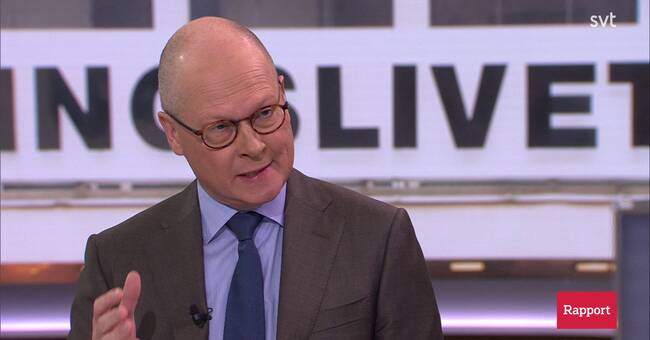The rules of order and employment protection have for a long time been one of the major political conflict issues between the left and the right in Swedish politics.
The January agreement's writings to clearly extend the exceptions in the rules of order were a concession the Social Democrats were forced to secure government power.
Otherwise, the Center Party and the Liberals would not have released Stefan Löfven as Prime Minister.
Now the question may be about to be decided.
An inquiry has already presented proposals on how this can be done.
This involves both increasing the number of exemptions in the event of redundancies from two to five and making it easier for companies to lay off employees for personal reasons.
The Social Democrats have harshly criticized the inquiry proposal, while both the Center Party and the Liberals demand that it be implemented unless the parties can agree.
The issue may escalate
Prime Minister Stefan Löfven thus places his hopes in the negotiations that have been going on for some time between the social partners.
Should these negotiations break down, this issue could quickly escalate into a government crisis.
The Social Democrats have difficulty accepting a bill according to the inquiry's proposal, but neither the Center Party nor the Liberals are prepared to back down from the position that the entire legislation should be implemented.
At the same time, the Left Party is threatening to raise the issue of a no-confidence motion against the government in the Riksdag.
This, too, could quickly lead to a government crisis.
Both the Sweden Democrats and the Christian Democrats seem prepared to hook on to such a no-confidence motion.
The Moderates' party leader Ulf Kristersson has also said that his party will then press the red button.
In such a situation, Sweden may be heading for a by-election.
The turbulence can continue
But the question is not quite simple for the Moderates.
V-leader Jonas Sjöstedt has made no secret of the fact that he does not really want to overthrow Löfven, but only try to force the government to withdraw plans to change labor law.
The moderates, on the other hand, would like to see a change in labor law, but of course want to remove Löfven.
Kristersson runs the risk of being used by Sjöstedt to stop a policy that the Moderates have been arguing for for decades.
But even if the social partners eventually succeed in settling it, it is not certain that the turbulence will be over for that reason.
Such a settlement must subsequently be approved by, among others, LO's supervisory board.
And it is no secret that in several unions there is strong criticism of the plans to change, among other things, labor law.
So even if you manage to reach a settlement, such an agreement can be torn up afterwards by the parties involved.

